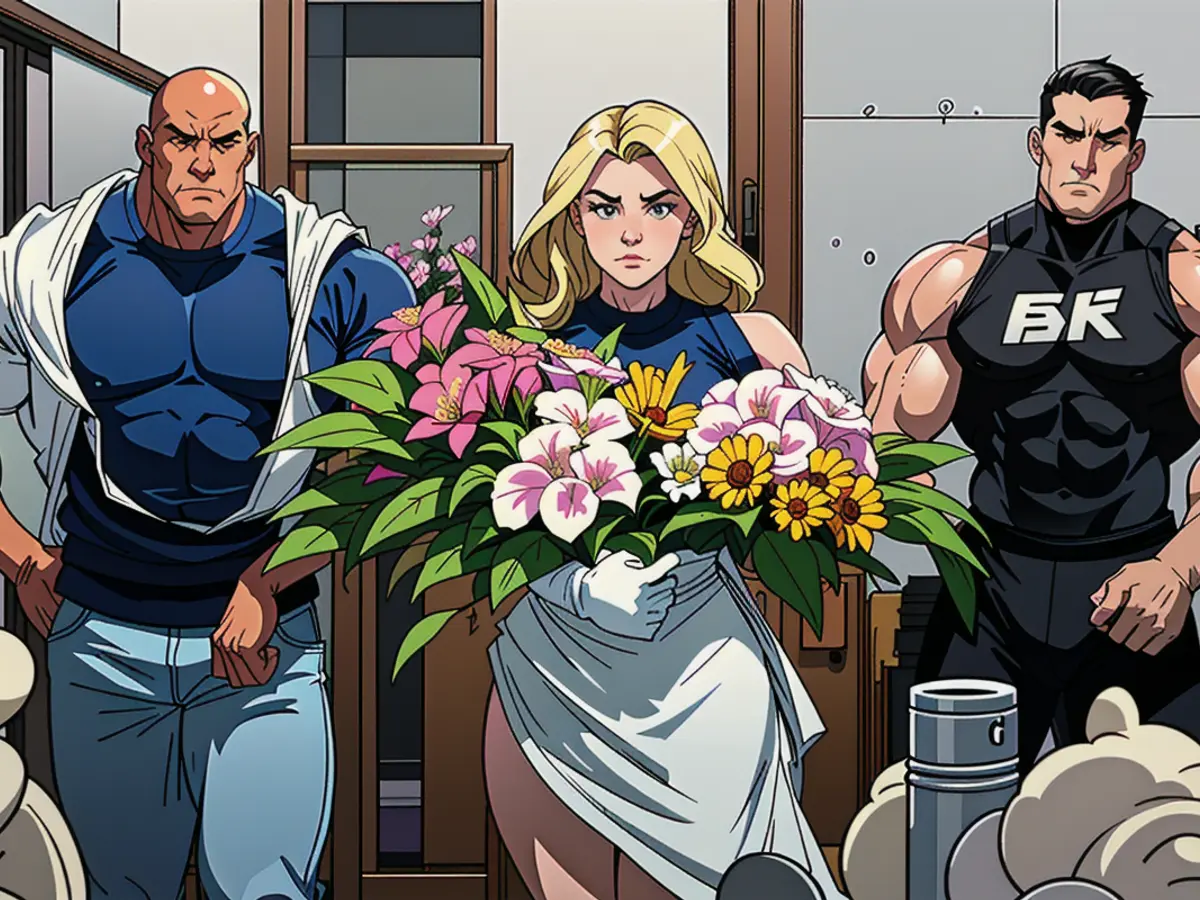Strained Friendship: Approaching the National Election, Canadian Voters Zero in on US Alliance
A New Day at Lola Blooms
The workday at Lola Blooms begins with a vibrant scene as the morning delivery is unpacked. A kaleidoscope of dahlias, hydrangeas, carnations, roses, and more, fresh from domestic fields, are arranged on worktables.
Just weeks ago, the scene included imported flowers, a routine for sisters-in-law and business partners Lindsay Smith and Kaitlynn Strain, as they created floral arrangements. But that's a thing of the past.
Now, Smith and Strain are angry Canucks on a mission to show their displeasure towards the current US administration. "We're trying to go local," Smith said, with Strain voicing her support for choosing Canadian blossoms over international imports. They're open to options like Holland and Mexico if necessary, but remain fervently seeking alternatives for American imports.
Some of the vases and hardware in the shop still hail from the US, but Smith and Strain are busying themselves with finding alternatives. "It's Trump," Smith explains, voicing her frustration. "He's like a schoolyard bully – we're supposed to be allies."
Their anger is palpable as they discuss tariff threats, Trump's controversial comments, and the notion of Canada becoming the 51st state. "It's ridiculous and insulting," Smith says passionately, reaching for a pair of maple leaf earrings to adorn themselves for our visit.
The Trump effect is everywhere – more Canadian flags are flying, "Proud Canadian" signs are displayed in windows, and a new tone of unity and resilience fills the air as Canadians prepare to elect a new parliament and prime minister.
Smith and Strain, along with others, are traditionally Green Party supporters, but due to the election's significance, they've decided to cast their votes for the Liberal Party. They hope for a strong, decisive leader who can stand up to the bully in the White House.
Authors and environmental journalist Toby Gorman offers further evidence of Canadians rethinking their political stance. A self-proclaimed independent who typically supports candidates from various parties, Gorman sees climate change as his top priority, and he leans towards the Green Party. Yet, despite his preferences, he plans to vote Liberal.

"Given the US situation and the crisis we're facing, I would usually side with the Greens," Gorman acknowledges. "But I want the winning party to have a strong mandate. I trust Prime Minister Mark Carney to lead us through this time."
Smaller parties like the Greens sometimes perform better in Canada than in the US, but Gorman, like many others, is moving towards one of the major parties. "I see Prime Minister Carney as focused, intelligent, and capable of handling the economy. He can manage the US situation," Gorman explains.
This election is a pivotal moment for Canada, according to every Canadian we spoke to – whether in Ontario or British Columbia. The country needs to revamp its military spending, explore new economic markets and partnerships, and shed the notion that its southern neighbor is a trustworthy, like-minded ally.
"We've had enough of him," Gorman saysis honest. "And it's been just three months. He wants to annex us, crush us economically. At first, it felt like losing a best friend. But now, it's like we can move on."
Despite their political leanings, Canadians are finding common ground in the face of mounting tension with the US. "We've always had our divisions, but Trump is causing a new kind of unity," Gorman reflects. "This election is causing a national pride, a sense of togetherness that we haven't seen in a while."
Conservative voters, like Peter Hamilton, may not share the same political views, but they attest to the need for collaboration. "The Liberals and Conservatives need to work together," Hamilton stressed. "We can't be squabbling while our country is at stake."
The historic polarization between the east and west, urban and rural, and liberal and conservative factions has become secondary to the need to address the rising tensions between the US and Canada. Trump has served as a catalyst for a new era of Canadian nationalism, putting the US-Canada relationship at the forefront of the electoral race.
"I put up a Canadian flag myself," Hamilton admits. "I never thought I'd see myself doing that. But when it comes down to it, Canadians stick together."

- Lindsay Smith and Kaitlynn Strain, the sisters-in-law and business partners at Lola Blooms, have switched from importing flowers to prioritizing Canadian blooms as a sign of their displeasure towards the current US administration.
- Amidst the rearrangement of worktables filled with local flowers, the sisters also discuss replacing US-origin vases and hardware, reflecting their growing dissatisfaction with the tariff threats and controversial comments from the US administration.
- Author and environmental journalist Toby Gorman, a self-proclaimed independent who typically supports various parties, plans to vote for the Liberal Party in the upcoming election, expressing his trust in Prime Minister Mark Carney to lead through the US crisis.
- The election in Canada is seen as pivotal, as Canadians from diverse political backgrounds, such as Conservative voter Peter Hamilton, unite in the face of mounting tension with the US, placing the US-Canada relationship at the forefront of the electoral race.








